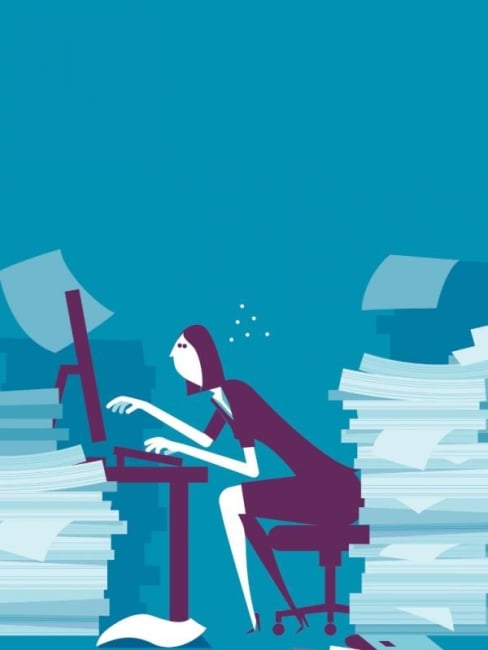You have /5 articles left.
Sign up for a free account or log in.

Istockphoto.com/akindo
We’re all guilty. We’ve read the social media posts, deliberated about it on discussion boards and rather earnestly adopted it: the misguided philosophy that we should present ourselves as ordinary people during this time of crisis to be more relatable to our students. It is baffling how the definition of “ordinary” somehow became bastardized, now representing something different -- something less organized, less professional, less … hygienic. “Let them see your seven loads of unfolded laundry,” we’re, more or less, told. “Let them see your messy house, your unwashed hair, your ungroomed dog. Let them know that we, too, are struggling with this transition. Be more lenient on grading, let them work at their own pace, let them tell you what they are capable of.” Wrong.
As educators, we have a responsibility to our students to teach them to be problem solvers, critical thinkers and professionals. We must demonstrate the expectations of good citizenship. We must provide consistency and continuity in a time when all else is uncertain. Our students need structure. They need routine. They need to know that they are a priority. They need responsible adults to demonstrate the proper way to respond to adversity and challenges. We must demonstrate how to show respect.
Imagine if you were an executive, eager to demonstrate the value of your company’s services to an important client. Would you show up unwashed, overly casual and ill prepared for a meeting? It would be unfathomable to imagine such -- no matter what was going on in the world around you. Our students are our clients, and we must exhibit professionalism.
In a world where conversations around us are terrifying, a student who has perceived Dr. Jones as a strong female role model, who is polished and eloquent at all times in the classroom, may be quite alarmed indeed to find Dr. Jones wearing her Pokémon pajamas with disheveled, unwashed hair, lamenting the added workload associated with social distancing. Your piles of unattended laundry are not trophies for the amount of time you are putting into your coursework. They are distractions, signs of disorganization and, quite frankly, unsightly and off-putting. Educators, please rethink your approach to your students. In these trying times, the last thing that they need to see is their adult, professional, highly educated instructor falling apart at the seams.
Safeguarding Our Standards
Changing your expectations for your students is equally as disheartening. Of course, we must be patient as our students adapt to an online environment. We must also be more sympathetic than ever to changing socioeconomic factors, and we must be ready and willing to help students navigate any barriers they’re confronting. What we must not do is cheapen the value of a college education.
If we allow students to turn in assignments that do not meet our normal expectations, we are directly responsible for any future beliefs that college coursework is no longer the robust, challenging and enriching platform for citizen development that it once was. If we tell them that they only need an excuse in order to perform at a lower standard, challenge themselves less and miss deadlines, how can we expect them to be citizens of integrity? Where will they learn that adapting to change is the most necessary skill in the professional tool belt?
This responsibility is ours, and we must rise to the challenge. Higher education has endured epidemics, wars, recessions, depressions and a plethora of instances of social unrest. We must endeavor to not be the generation that allowed its integrity to crumble as we caved to laziness, disorganization and unprofessionalism.
We can start small. Please wash your hair.








